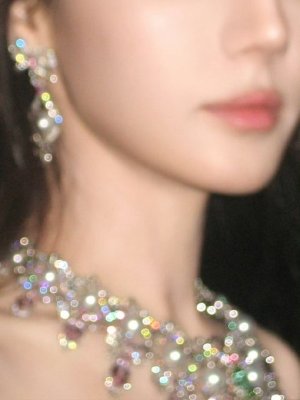This review may contain spoilers
Legendary Zang Hai !
Legend of Zang Hai left a strong impression on me, and I can confidently say it’s one of the most captivating Chinese dramas I’ve watched—right up there with The Double and The Glory. What stood out the most was the way the storyline was executed: layered, deliberate, and full of twists that kept me guessing until the very last episodes.
The mystery surrounding the third enemy was handled brilliantly. Throughout the series, a masked man orchestrated chaos from the shadows—but we never truly knew who he was. The reveal came only when he himself revealed it, thinking he had already won. That moment hit hard. The masked villain turned out to be Zhao Bingwen, Zang Hai’s third master—and his ultimate enemy. He wasn’t just hiding in plain sight; he had been pulling the strings from the beginning, outsmarting his allies, letting them fall, and raising Zang Hai not out of care, but to use him as a pawn in his grand plan.
The irony is brutal: Zhao Bingwen was the one who destroyed the Kuai family, and never wanted Zang Hai to uncover the truth or seek revenge. His goal was power through the Gui Seal, and Zang Hai was simply a tool to achieve it. But what he miscalculated—fatally—was Zang Hai’s heart. In trying to shape a weapon, he raised someone who still carried compassion, loyalty, and a deep sense of justice. That misjudgment was his downfall.
What makes this drama so compelling is that Zang Hai wasn’t some flawless mastermind. He was smart, yes, but also impulsive, emotional, and deeply human. He made mistakes—many of them—but each one made him more real. He wasn’t a perfect hero, just a boy with a heavy past and a big heart, struggling through betrayal, pain, and impossible choices. That emotional vulnerability gave his story weight and made his triumphs and failures resonate deeply.
The romance between Zang Hai and An Tu was subtle but meaningful. She remained loyal to him while never abandoning her mission to protect Dongxia and find the Gui Seal. Their relationship added emotional stakes without overshadowing the central narrative of revenge, justice, and identity.
The political and social dynamics in the world of Legend of Zang Hai were another strength. I especially appreciated the contrast between Dongxia, where women held real influence and power, and the more traditional, patriarchal structure of The Great Young. This nuance enriched the worldbuilding and highlighted the struggles of characters like An Tu, whose strength was quietly revolutionary.
The supporting characters were just as memorable:
- Zhuang Zhixing was a spoiled, cunning brat turned powerful military man. The fact that Zang Hai unknowingly gave him the tools to rise only added bitterness but I'm glad he realised his worth and joined forces with Zang Hai and An tu.
- Marquis Zhuang Luying genuinely surprised me. I believed, at times, that he might find redemption. His bond with Zang Hai was more complex than expected, and there was real emotional chemistry between them—making his non redemption arc still sad but more realistic. A villain will always be a villain.
-Gao Ming was heartbreaking. A “secondary” character who carried immense weight, he constantly warned Zang Hai that survival mattered more than truth. He was far too intelligent and connected to be a mere master, and he seemed burdened by guilt in every scene. Though he betrayed Zang Hai, he also tried to protect him. His death was a poignant reminder that truth, no matter how long it’s hidden, always demands its moment—and that even pawns have agency.
In the end, Legend of Zang Hai delivered everything I look for in a drama: emotional depth, political intrigue, sharp plot twists, and characters that stay with you long after the final episode. Even when certain moments felt clumsy, the overall structure and storytelling were so strong that they never pulled me out of the experience. Every twist, in hindsight, felt obvious—but only after the story had taken me through all its carefully laid traps.
It’s a drama about revenge, yes—but more than that, it’s a story about identity, manipulation, and the resilience of a good heart in a world designed to break it. I was never disappointed—only moved, surprised, and completely immersed.
The mystery surrounding the third enemy was handled brilliantly. Throughout the series, a masked man orchestrated chaos from the shadows—but we never truly knew who he was. The reveal came only when he himself revealed it, thinking he had already won. That moment hit hard. The masked villain turned out to be Zhao Bingwen, Zang Hai’s third master—and his ultimate enemy. He wasn’t just hiding in plain sight; he had been pulling the strings from the beginning, outsmarting his allies, letting them fall, and raising Zang Hai not out of care, but to use him as a pawn in his grand plan.
The irony is brutal: Zhao Bingwen was the one who destroyed the Kuai family, and never wanted Zang Hai to uncover the truth or seek revenge. His goal was power through the Gui Seal, and Zang Hai was simply a tool to achieve it. But what he miscalculated—fatally—was Zang Hai’s heart. In trying to shape a weapon, he raised someone who still carried compassion, loyalty, and a deep sense of justice. That misjudgment was his downfall.
What makes this drama so compelling is that Zang Hai wasn’t some flawless mastermind. He was smart, yes, but also impulsive, emotional, and deeply human. He made mistakes—many of them—but each one made him more real. He wasn’t a perfect hero, just a boy with a heavy past and a big heart, struggling through betrayal, pain, and impossible choices. That emotional vulnerability gave his story weight and made his triumphs and failures resonate deeply.
The romance between Zang Hai and An Tu was subtle but meaningful. She remained loyal to him while never abandoning her mission to protect Dongxia and find the Gui Seal. Their relationship added emotional stakes without overshadowing the central narrative of revenge, justice, and identity.
The political and social dynamics in the world of Legend of Zang Hai were another strength. I especially appreciated the contrast between Dongxia, where women held real influence and power, and the more traditional, patriarchal structure of The Great Young. This nuance enriched the worldbuilding and highlighted the struggles of characters like An Tu, whose strength was quietly revolutionary.
The supporting characters were just as memorable:
- Zhuang Zhixing was a spoiled, cunning brat turned powerful military man. The fact that Zang Hai unknowingly gave him the tools to rise only added bitterness but I'm glad he realised his worth and joined forces with Zang Hai and An tu.
- Marquis Zhuang Luying genuinely surprised me. I believed, at times, that he might find redemption. His bond with Zang Hai was more complex than expected, and there was real emotional chemistry between them—making his non redemption arc still sad but more realistic. A villain will always be a villain.
-Gao Ming was heartbreaking. A “secondary” character who carried immense weight, he constantly warned Zang Hai that survival mattered more than truth. He was far too intelligent and connected to be a mere master, and he seemed burdened by guilt in every scene. Though he betrayed Zang Hai, he also tried to protect him. His death was a poignant reminder that truth, no matter how long it’s hidden, always demands its moment—and that even pawns have agency.
In the end, Legend of Zang Hai delivered everything I look for in a drama: emotional depth, political intrigue, sharp plot twists, and characters that stay with you long after the final episode. Even when certain moments felt clumsy, the overall structure and storytelling were so strong that they never pulled me out of the experience. Every twist, in hindsight, felt obvious—but only after the story had taken me through all its carefully laid traps.
It’s a drama about revenge, yes—but more than that, it’s a story about identity, manipulation, and the resilience of a good heart in a world designed to break it. I was never disappointed—only moved, surprised, and completely immersed.
Was this review helpful to you?













